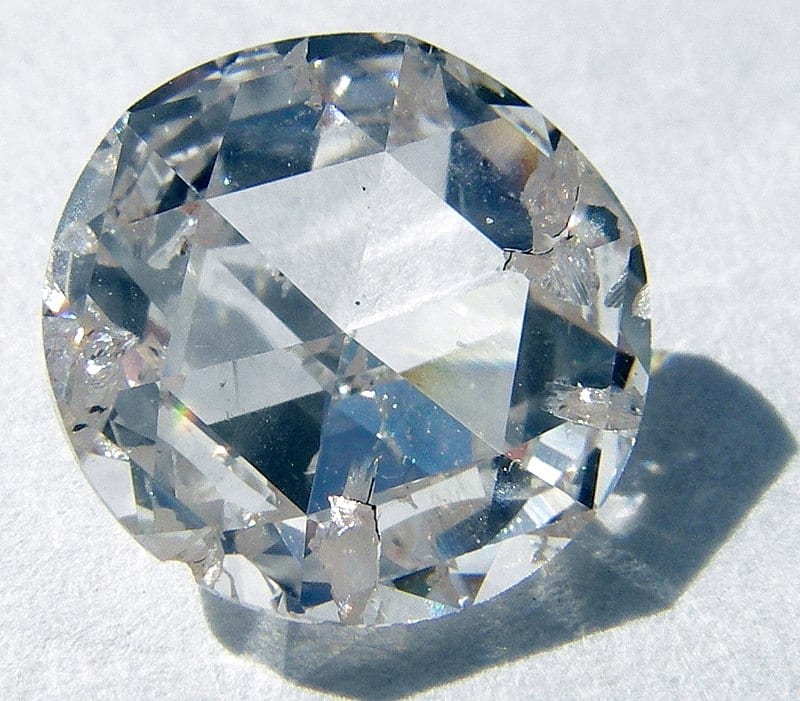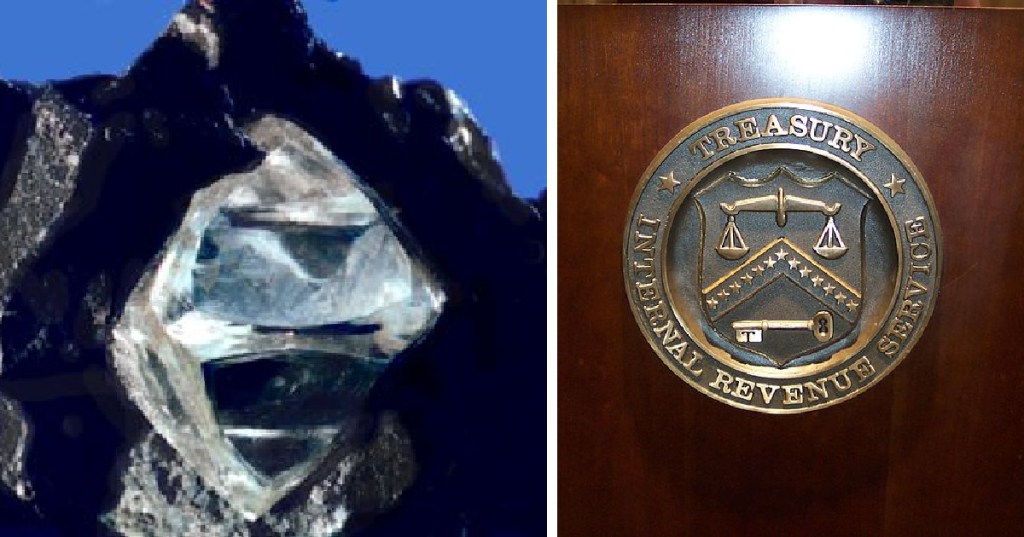The only two things in life that are for sure are death and taxes. That’s the saying, and whoo boy, if this lucky duck of an Arkansas man didn’t find out the hard way how right that is.
One of the things in life that’s definitely not guaranteed is finding a nine-carat diamond.
That’s exactly what happened to 33-year-old Kevin Kinard, though, when he found a 9.07 carat diamond in a public state park. Visitors who find diamonds or other minerals at the site are allowed to keep them, so Kevin – like the guy who found a 16.37 carat diamond back in 1975 – was free to keep it.

Image Credit: Steve Jurvetson
What Kevin didn’t know (and you might not either) is that “found” items are considered income, and are therefore taxable by the IRS.
Kevin hasn’t had the stone appraised, so it might be kind of hard to pay taxes on it, but if there’s one thing I know for sure about the IRS, it’s that they’ll find a way to make it happen.
Cesarini v. United States says that pretty much anything you find is fair game. In that case, a man bought a used piano for $15 and found $5ooo inside of it. The IRS calls finds like that a “treasure trove” and says it’s your job to value and declare it on your tax returns.

Image Credit: Pexels
Really, the only way to get out of it is to prove that the item belonged to you in the first place and you’ve just recovered it – like in the case of stolen artwork, etc. Even then, if it’s increased in value since you lost it, you might be on the hook for paying taxes on the increase in value.
And listen, not even giving the thing or the money from selling the thing to charity will get you out of the taxes, since you can only claim charitable contributions up to 50% of your AGI, and for some contributions, the limit lowers to 30%.

Image Credit: Pexels
Basically if you, like Kevin, find yourself the recipient of some kind of windfall, you definitely want to check with a tax attorney before you decide whether or not to set anything aside for Uncle Sam.
Chances are, you definitely need to suck it up and accept the inevitable.
But hey, that’s our take on it. What do you think? Should we have to pay the IRS for surprise finds like this?
Let us know in the comments!






